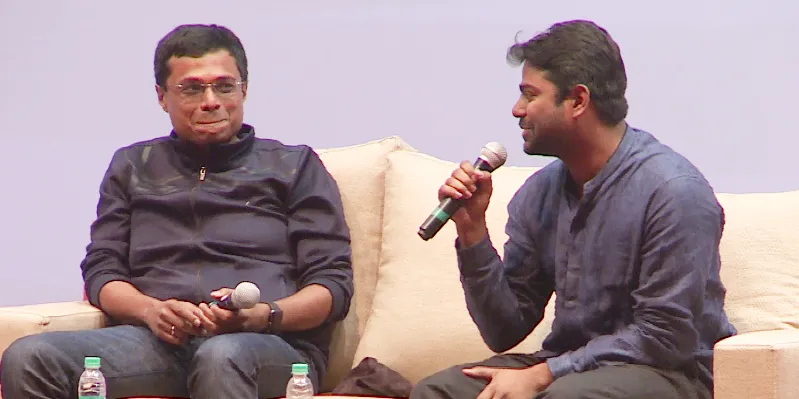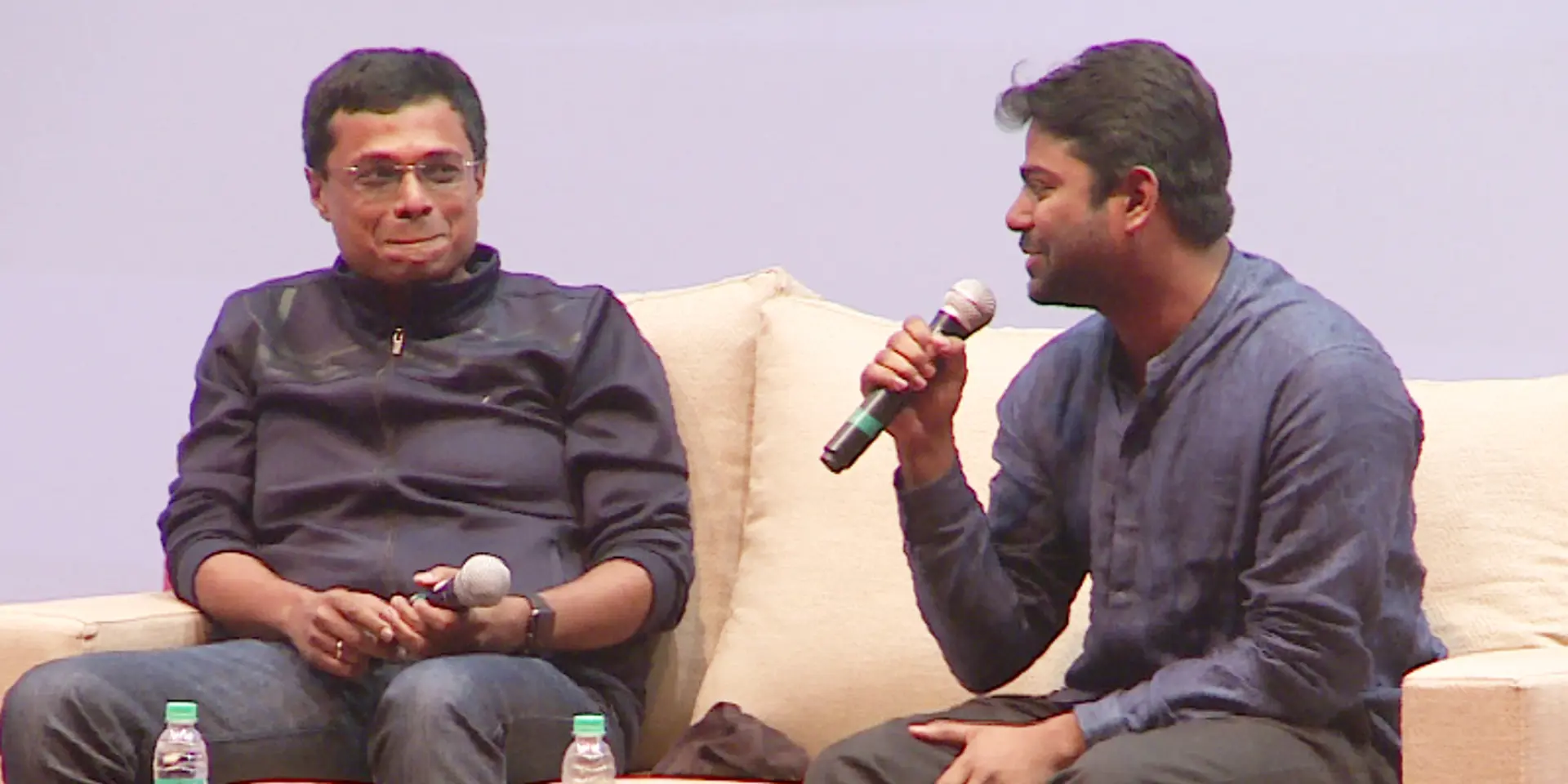When the Moghul met the Dark Horse of Indian startups
Rahul Yadav smugly walks onto the stage where he says he should have received his B.Tech degree but didn’t, as the crowd at IIT-B’s Convocation Hall– possibly made up of aspiring entrepreneurs -- erupts in hysterical cheers.
The anchor, Bloomberg’s Abha Bakaya, tries to tell the audience that Rahul is not trying to set an example, but it is too late. They already consider him an anti-hero of sorts, one who does not play by the rulebook, the dark horse that you cannot help but side with.

The IIT they studied in
Sachin Bansal is no stranger to the magic of IITs either, having walked the halls and done the grind at IIT- Delhi back in the day as well. And even as he went on to become the founder of one of the world’s top five e-commerce companies, Flipkart, his roots at his alma mater are always a part of his gratitude and reminiscence.
“I was supposed to collect my certificate, but I didn’t do that. I had told these guys that one day, they will call me,”was the note on which the Fireside Chat between the Dark Horse and the Moghul–albeit both poster childs of India’s startup ecosystem -- began at IIT Bombay’s E-Summit 2016. With this crackling duo, fireworks were bound to go off.
“For me, IIT means the best of minds put together and bad infrastructure in hostels,” joked Rahul Yadav, adding,“However, I felt invincible thanks to being an IITian like we could create, design, sell anything without any outside help. We aced at everything, creating products and designing them etc. Going in, I thought, that was it, that’s all we needed. Marketing, HR, and media relations were all BS. How I was proved wrong. Having a great product will not sell itself; marketing, field sales, communications and media are equally important, HR, administration are crucial, and you must build a team good at each if you want to succeed,”said Rahul, emphasising on the building blocks of a bootstrapped startup.
Starting up - now and then
As they say, a startup founder must sign up for being everything from the peon to the principal of his school, and Sachin Bansal agrees. “Right from seven years ago to even a year ago, almost on a daily basis I had been doing something new. Change is the only constant. People who are nimble are the ones who will get ahead.”
But what’s new in the startup ecosystem, and what challenges have persisted? Sachin said,
We had Flipkart’s blueprint ready within 10 weeks of quitting our jobs, but the biggest challenge is that it still takes 45 days to make (officially register) a company. But even as I think those challenges continue, what’s great is that there are people who are thinking fearlessly of starting up, people are willing to start up, and the investor-scene has changed drastically as entrepreneurs receive investments for the big idea. Hiring has undergone change, and people are willing to join startups rather than the conventional big corporates, and with good reason, for startups are able to offer wealth creation opportunities.
But with this nitro boost, giving rise to hundreds of startups in every college campus and possibly lakhs outside, the competition is neck and neck. How, then, does one strike gold with an idea? Sachin’s take is simple and bang on.
What I look for is around the biggest problem areas. For example, today, India is at a stage where technology transformation has not happened, where optimum harnessing of technology has not happened, but it is only a matter of time. So, the entrepreneur must go after solving big challenges of our time with a very high-quality understanding of their space.
And who says competition is a bad thing? "This competition motivates us. The worst thing that can happen to any company is not to have competition. Before Amazon entered the market, our growth rate was 100 percent year on year, but after its strong entry, we have grown 200 percent year on year. You need to raise higher amounts of money when you have competition; but that's all healthy and productive."
Power dynamics between investors and founders
The fact that the big idea that gets funding has become the norm rather than the exception, Rahul comments on the dark side of this funding race, and the pressures of striking the growth and scaling versus maintaining profitability balance.
"There are two types of investors: individual investors and then funds. We (referring to his Housing days) got much more support from individuals, so my preference lies with taking limited cash from individuals. VCs sometimes get jittery. I do not have so much respect for fund managers,”says the ever-candid Rahul, although, Sachin had a different story to tell. “You probably shook hands with all the wrong investors, because my experience was only positive. Sure, if our investors are not aligned with our plans then you have difficult times ahead. So, one must be clear with the investor from the start about what you are doing and your vision, and ensure theirs align with yours," says Sachin.
Even as Rahul argued about the power dynamic always being in favour of the investors, Sachin imparted valuable tips on how to build healthy relationships with investors by establishing boundaries early on.
There are ways to change the power dynamics. What Alibaba and Flipkart have done is given the voting rights to the founders, even as people from the young generation are willing to dilute if they are getting big money. The bottom line is that the primary interest of the business has to be taken care of. If the business is successful, everyone will gain.
Of success and motivation
With gaining comes success, and with success comes fame, or, in Rahul's case - infamy.
But Rahul said he chooses to block the negativity out and go roaring ahead.
I do not read articles about me. The best approach is to not care about what is written about me.
"The media tends to either paint extremely positive or negative pictures of success and failures in their reportage," said Sachin, adding that the air around startups though, is generally positive.
According to him,
Young people themselves are more motivated now. The crowd in this room is a proof of that. The PM is talking about it; there is acceptance.







